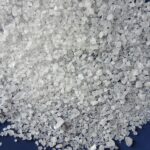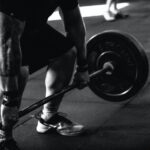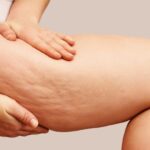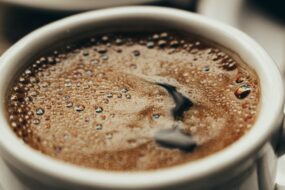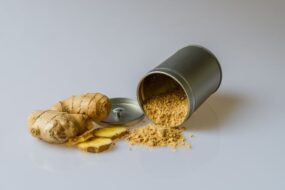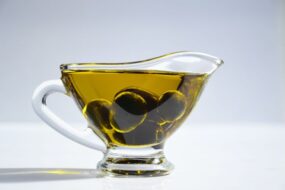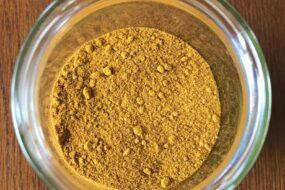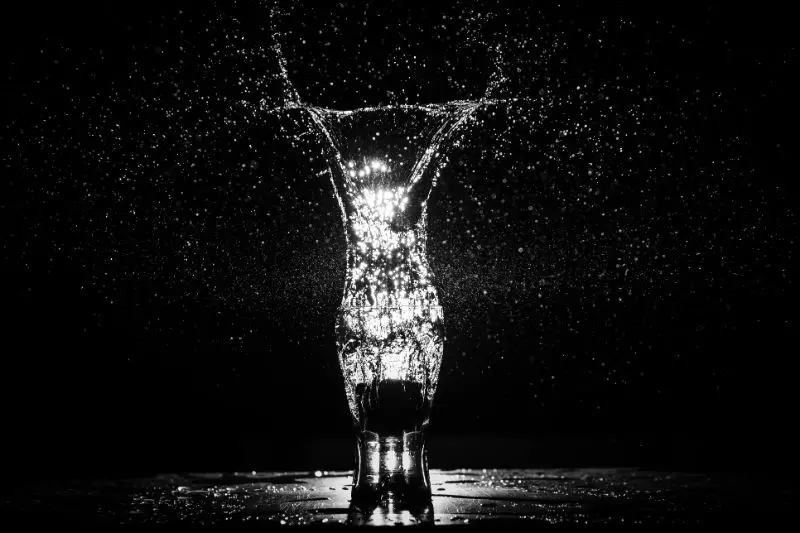
If you’re on a weight loss journey, you might wonder how much water you should drink to lose weight. Drinking water is one of the simplest and most effective things you can do to support weight loss efforts, as it helps you feel full, boosts your metabolism, and reduces calorie intake.
In this article, we’ll explore the connection between drinking water and weight loss and how to use water to help you lose weight.
Table of Contents (click to expand)
How much water should you drink per day?
Before diving into water’s specific benefits for weight loss, let’s talk about the recommended daily water intake. The water you need can vary based on weight, activity level, and climate. However, a general guideline is to drink at least eight 8-ounce glasses of water daily, equivalent to about 2 liters or half a gallon.
It’s important to note that this is just a rough estimate, and some people may need more or less depending on their individual needs. For example, if you’re physically active or live in a hot climate, you may need to drink lots more water to stay hydrated. The best way to determine your daily water needs is to listen to your body and drink when thirsty.
Drinking water and weight loss: What’s the connection?
So, how does drinking more water help you lose or lose weight? Several studies have shown that increasing your water intake can boost your metabolism, reduce calorie intake, and even help you lose body fat. Here are some of the ways that water can aid in weight loss:
It helps you feel full
Drinking water before a meal can help you feel full and eat fewer calories. One study found that participants who drank 16 ounces of water before a meal ate about 13% fewer calories than those who didn’t. Drinking water throughout the day can with energy drinks also helps you resist snacking and prevent overeating.
It boosts metabolism
Drinking water can increase your metabolic rate and resting energy expenditure (REE), the number of calories your body burns at rest. One study found that drinking 500 ml of water increased REE by about 24-30% for an hour afterward. This means drinking water can help you burn more calories, even when not exercising.
It reduces calorie intake
Drinking water instead of sugary drinks can significantly reduce your calorie intake. For example, one 12-ounce can of soda contains about 140 calories, while plain water has zero calories. Swapping just one soda daily for water can save you up to 1,400 calories per week.
It’s a natural appetite suppressant
Drinking water can help suppress your appetite and reduce cravings. One study found that participants who drank two cups of water before a meal lost about 44% more weight than those who didn’t. This may be because drinking water on an empty stomach helps you feel fuller and less hungry.
How to use water for weight loss
Now that you know how drinking water can help with weight loss, here are some tips for incorporating water into your weight loss plan:
Drink water before meals
As mentioned earlier, drinking water before a meal can help you eat fewer calories overall. Aim to drink at least one glass of water 30 minutes before each meal.
Carry a water bottle with you
Carrying a water bottle with you wherever you go can encourage you to drink plenty more water throughout the day. Choose a bottle that you like and find easy to carry around.
Drink water when you feel hungry
Sometimes when we feel hungry, we’re thirsty. Before reaching for a snack, drink a glass of water and wait 10-15 minutes to see if you’re still hungry.
Experiment with different types of water
If you find drinking plain water boring, try adding fresh herbs or fruit slices to infuse it with flavor. You can also try drinking sparkling or warm water with lemon for a change.
Other benefits of drinking water for weight loss
While weight loss is one of the most notable benefits of drinking water, adequate hydration also has other health benefits. Here are some additional reasons to prioritize proper hydration:
It supports healthy connective tissues
Drinking water helps hydrate your skin, joints, and muscles, supporting healthy connective tissues.
It reduces the risk of muscle cramps
Dehydration can lead to muscle cramps and fatigue during exercise. Staying adequately hydrated can reduce your risk of cramps and improve your performance.
It boosts energy levels
When you’re dehydrated, your body has to work harder to perform even the human body’s basic functions, leaving you tired and sluggish. Drinking plenty of water can help you feel more alert and energized throughout the day.
Common misconceptions about drinking water and weight loss
Before we wrap up, let’s address some common misconceptions about drinking water and water weight and loss:
Myth: You should drink a gallon of water per day.
While staying hydrated is essential, there’s no need to force yourself to drink a specific amount of water each day. The “eight glasses a day” guideline is a good starting point, but you should listen to your body and drink when thirsty.
Myth: Drinking lots of water will make you gain weight.
Water does not contain calories, so drinking water alone will not cause weight gain. Drinking water instead of sugary drinks can help reduce calorie intake and aid in weight loss.
Myth: Drinking water at mealtime dilutes stomach acid and interferes with digestion.
No evidence supports the idea that drinking water during meals interferes with digestion. Drinking water before or during a meal helps and can help you feel fuller and eat less overall.
Water-rich foods for weight loss
In addition to drinking water, you can also increase your fluid intake by consuming water-rich foods. These foods contain high amounts of water and are low in calories, making them an excellent choice for weight loss. Here are some examples of water-rich foods:
- Cucumber (96% water)
- Lettuce (96% water)
- Watermelon (92% water)
- Broccoli (91% water)
- Grapefruit (91% water)
Incorporating these foods into your daily diet can increase your fluid intake and support your weight management and loss goals.
Does the temperature of water matter for weight loss?
You may have heard that drinking cold water can help you burn more calories, as your body must work harder to warm the water to body temperature. While this is true to some extent, the difference in calorie burn between water coolers alone is relatively small. Drinking water at any temperature can support weight loss efforts, so choose the temperature that you find most comfortable.
How to track your water intake for weight loss
Tracking your water intake can help you stay on top of your hydration status and ensure you drink enough water throughout the day. Here are some methods for tracking your water intake:
Use a water tracker app
Many apps allow you to log your water intake and track your progress over time. Some popular options include MyFitnessPal, WaterMinder, and Plant Nanny.
Carry a water bottle with measurements
If you prefer a more low-tech approach, use a water bottle with measurements on the side to track your intake. Aim to fill the bottle multiple times daily to reach your daily intake goal.
Keep a journal
If you prefer writing things down, keep a journal to track your daily fluid intake. Write down how much water you drink daily and any other fluids you consume.
Risks of overhydration
While it’s essential to stay hydrated, drinking too much water can be dangerous and even life-threatening in rare cases. Overhydration can lead to hyponatremia, which occurs when your blood sodium levels become too diluted. Symptoms of hyponatremia include nausea, headache, confusion, seizures, and coma.
To avoid overhydration, listen to your body and drink when thirsty. It would be best to be cautious of drinking excessive amounts of water during intense exercise, as this can increase your risk of hyponatremia.
Frequently Asked Questions
Can drinking water help lose belly fat?
Drinking water can help with weight loss, but it is not a magic solution for specifically targeting belly fat. However, staying hydrated can aid in digestion and reduce bloating, a few pounds, which may contribute to a flatter-looking stomach.
How much water should I drink to lose belly fat?
No set amount of water guarantees belly fat loss. Drinking at least eight 8-ounce glasses of water per day is generally recommended, but individual needs may vary based on factors such as activity level and body weight.
How much weight will I lose if I only drink water for 30 days?
It is not advisable to only drink water for 30 days or any extended period. Extreme dieting can lead to serious health complications and is not a sustainable weight loss method. Additionally, any weight lost during this time will likely be regained once regular, healthy eating and patterns resume.
How much water should I drink due to my weight?
A general guideline for water intake based on body weight is to drink half an ounce to an ounce of water per pound of body weight each day. For example, someone weighing 150 pounds would aim to drink between 75 and 150 ounces of water daily. However, individual needs may vary based on activity level and other factors
Conclusion
Water is a simple but powerful tool for weight loss and overall health. Staying adequately hydrated can reduce calorie intake, boost metabolism, and support your weight loss efforts. Aim to drink at least eight glasses of water daily, and consider incorporating water-rich foods into your diet. Remember to listen to your body and stay adequately hydrated without overdoing it. You can achieve your weight loss goals and feel your best with proper hydration.





